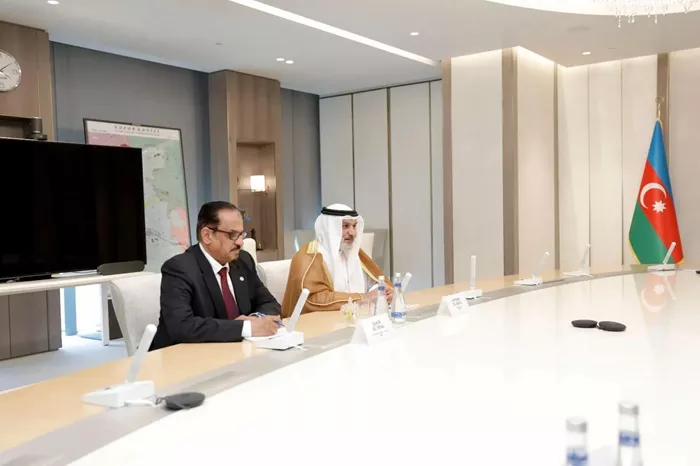The Organization of the Petroleum Exporting Countries (OPEC) Secretariat announced on Wednesday that it has received compensation plans from Iraq, Kazakhstan, and Russia for exceeding their oil production quotas in the first half of 2024.
According to OPEC’s statement, the three countries collectively overproduced by 2.28 million barrels per day (bpd) during this period. This issue was addressed during the 37th OPEC and non-OPEC Ministerial Meeting (ONOMM) on June 2, where member countries emphasized the crucial need for full conformity with production limits and adherence to the compensation mechanism.
Iraq, Kazakhstan, and Russia have submitted detailed plans outlining their commitments to compensate for the overproduction, covering the months from January to June 2024. Iraq’s plan entails reducing output by approximately 1,184 thousand barrels per day (tb/d), while Kazakhstan and Russia plan to cut production by 620 tb/d and 480 tb/d, respectively, based on assessments conducted by approved independent sources under the Declaration of Cooperation (DoC).
As per the provided schedule by OPEC, Iraq and Kazakhstan will begin implementing cuts in July, reducing production by 70,000 bpd and 18,000 bpd, respectively. Russia, on the other hand, will initiate cuts starting October.
Recent data from the Platts OPEC+ Survey indicates that in June, Iraq produced 4.22 million bpd against a quota of 4 million bpd. Russia’s production stood at 9.10 million bpd (quota 8.978 million bpd), while Kazakhstan produced 1.54 million bpd (quota 1.468 million bpd) during the same month, surpassing their allocated limits.
Regarding Russia, OPEC stated that 40,000 bpd of excess production will be compensated for in October-November 2024, with the remaining 440,000 bpd to be offset from March to September 2025.
The Russian Ministry of Energy affirmed its commitment to adhere to required output levels, as verified by independent sources endorsed by the OPEC+ agreement. The ministry highlighted a gradual decline in oil production since April and confirmed the submission of its compensation schedule to the OPEC Secretariat.
In response to production discrepancies, Deputy Prime Minister Alexander Novak assured that Russia is nearing its target under the OPEC+ pact. Last month, Russia acknowledged surpassing its production quota in April due to technical reasons.
Meanwhile, Iraq attributed its higher production figures partly to estimates from the Kurdistan region, which operates semi-autonomously. The government in Baghdad lacks full oversight over Kurdish production levels, complicating efforts to align with federal quotas.
Jim Burkhard, Vice President of Oil Markets at Commodity Insights, commented on the challenges posed by Iraq’s situation, suggesting that unless Kurdish output is curtailed, further cuts in federal production may be necessary.
The compensation plans submitted by Iraq, Kazakhstan, and Russia mark a pivotal step in OPEC’s efforts to stabilize global oil markets amid fluctuating production levels and adherence to agreed quotas.
Related topics:
3 Factors Behind Opec’s Oil Production Cuts

